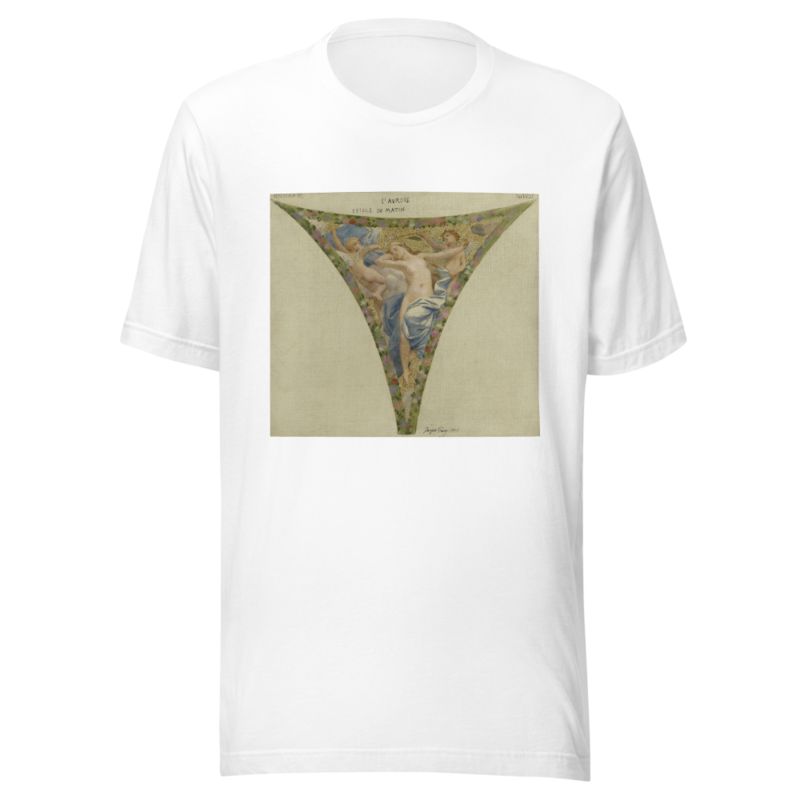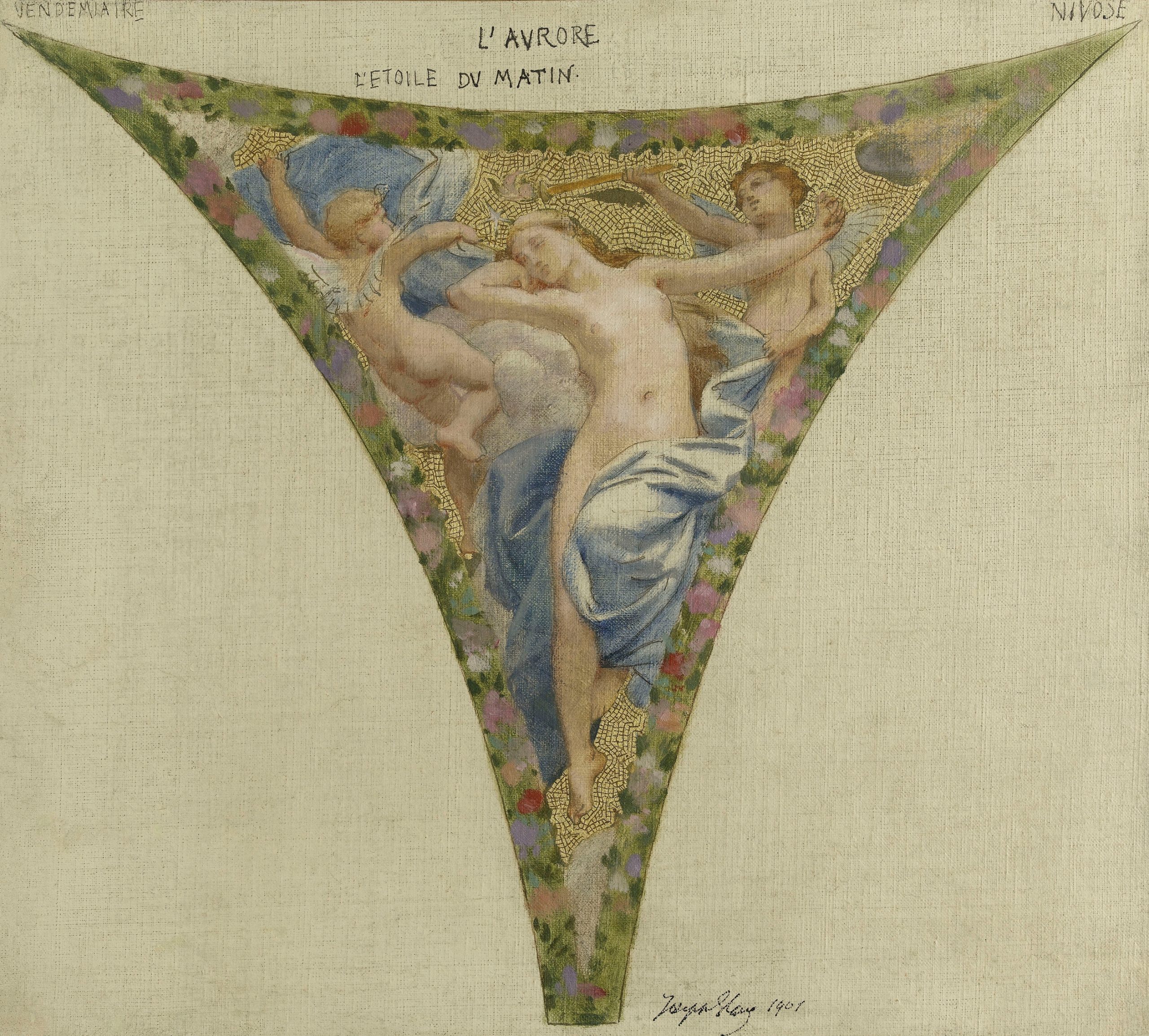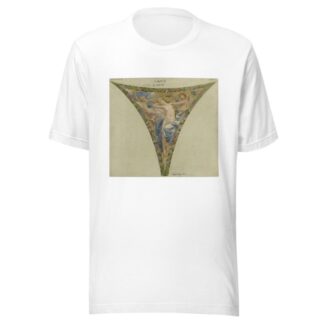Description
L’Aurore by Joseph Blanc printed on a T-Shirt
About the T-Shirt
Regular fit
Standard length, the fabric easily gives into movement
Casual wear
A classic, everyday option loved by our customers
Side-seamed
Constructed by sewing two parts together, creating a fitted look
The Unisex Staple T-Shirt feels soft and light with just the right amount of stretch. It’s comfortable and flattering for all. We can’t compliment this shirt enough–it’s one of our crowd favorites, and it’s sure to be your next favorite too!
- Solid colors are 100% Airlume combed and ring-spun cotton
- Ash color is 99% combed and ring-spun cotton, 1% polyester
- Heather colors are 52% combed and ring-spun cotton, 48% polyester
- Athletic and Black Heather are 90% combed and ring-spun cotton, 10% polyester
- Heather Prism colors are 99% combed and ring-spun cotton, 1% polyester
- Fabric weight: 4.2 oz./yd.² (142 g/m²)
- Pre-shrunk fabric
- 30 singles
- Side-seamed construction
- Tear-away label
- Shoulder-to-shoulder taping
- Blank product sourced from Nicaragua, Mexico, Honduras, or the US
Joseph Blanc (1846-1904)
Paul-Joseph Blanc was a French painter who specialized in scenes from ancient history and mythology.
He studied at the École des Beaux Arts with Émile Bin and Alexandre Cabanel. In 1867, he was awarded the Prix de Rome for painting for his work The Murder of Laius by Œdipus and was named a Professor at the École in 1889. His studio in Montmartre also served as an art school.
In addition to his favorite subjects, he produced many portraits of politicians, including Georges Clemenceau, Léon Gambetta and Paul Bert.
He participated in the decoration of several buildings; among them the Panthéon, where he painted The Vow of Clovis at the Battle of Tolbiac, The Baptism of Clovis and The Triumph of Clovis. His decorative paintings may also be seen at the Opéra-Comique and the Hôtel de Ville
He created a design for postage stamps as well. They featured the figure of Marianne and came in denominations from one through five, seven and a half, and ten centimes. They were also overprinted for use in the French colonies and were commonly referred to as “Blancs”. The original engraved wooden block used to create the stamps is at the Musée de La Poste in Paris.






Reviews
There are no reviews yet.